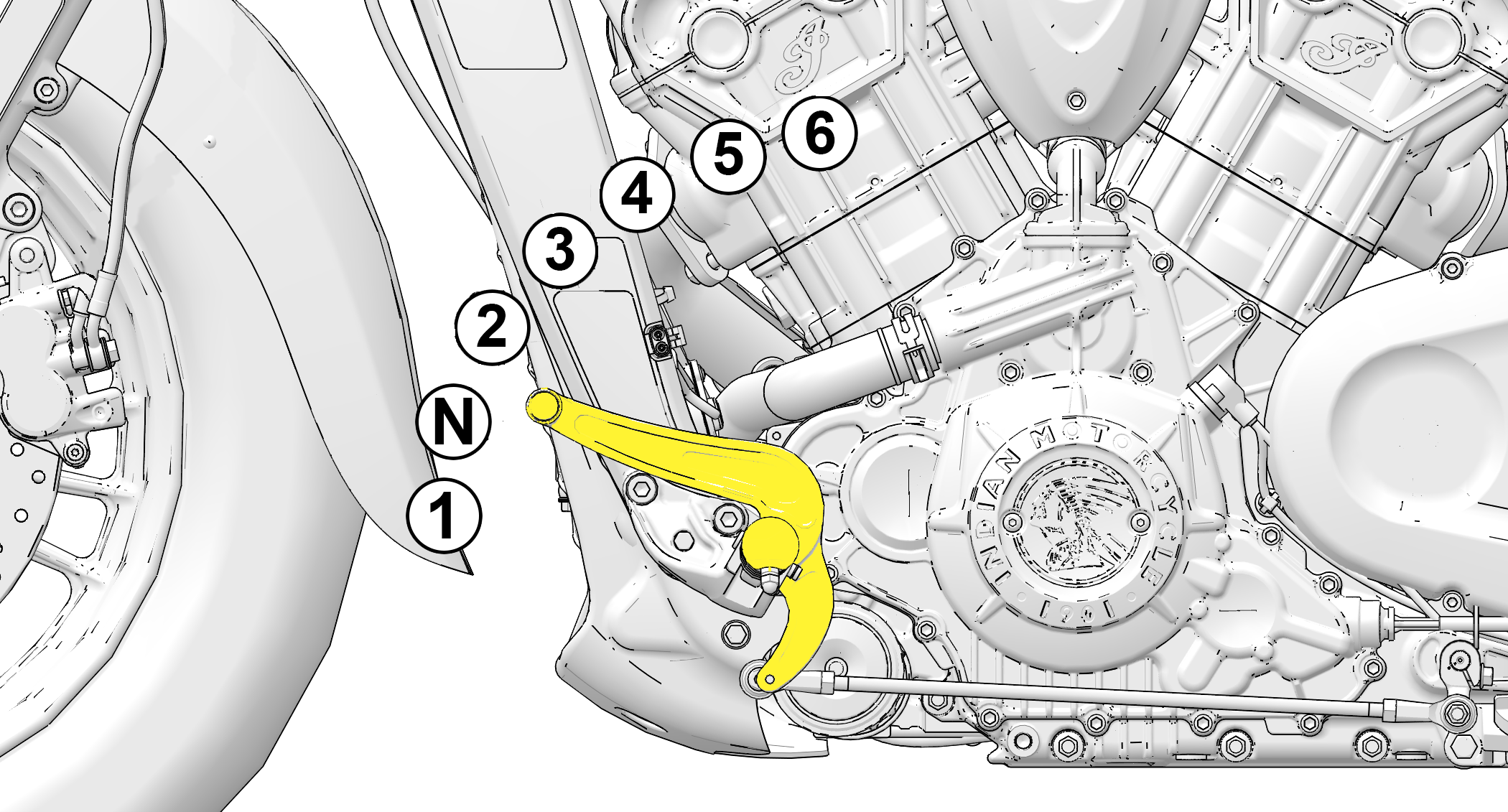 WARNING WARNING |
| Forced shifting (with clutch engaged) could cause damage to the engine,
transmission and drive train. Such damage could cause
loss of control, which could
result in serious injury or death. Always pull the clutch lever fully
toward the handlebars to
disengage the clutch before
shifting gears. |
Your motorcycle may
be equipped with either a five-speed or a six-speed transmission.
Neutral is located between first and
second gear.
Press downward on
the toe lever to shift to a lower gear. Lift upward on the toe lever
to shift to a higher gear. Release
the clutch lever after each gear shift.
Shifting to neutral
is easiest if the motorcycle is rolling slowly. To shift from first
gear to neutral, gently lift the toe
lever a half stroke.
| TIP |
| The transmission is in neutral if you can move the motorcycle forward
or rearward freely without disengaging the clutch. If
the ignition switch is in the
ON position, the neutral indicator illuminates when the transmission
is in neutral. |
Shifting Gears While Stationary
To locate neutral when the motorcycle
is stationary, use one of the following techniques to load
and unload the transmission:
- With the clutch disengaged
(lever pulled inward), shift into neutral while rocking the motorcycle
forward and rearward.
- With the transmission
in first gear, gently release the clutch until it just begins to engage.
Apply upward pressure on the
toe lever and quickly pull the clutch inward.
| NOTE |
| There is a Neutral indicator light on the instrument cluster. |

